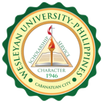 In response to the invitation of Bishop Israel Painit, Davao Episcopal Area (DEA), Dr. Irineo G. Alvaro Jr., President of Wesleyan University-Philippines (WUP), directed the Crisis Management Committee Chairman, Mr. Renato Salvador, to extend assistance and participate in two (2) medical missions, and to coordinate with the Wesleyan External Systems, Connections, Opportunities, and Partnerships (WESCOP) office to ensure the success of the undertaking.
In response to the invitation of Bishop Israel Painit, Davao Episcopal Area (DEA), Dr. Irineo G. Alvaro Jr., President of Wesleyan University-Philippines (WUP), directed the Crisis Management Committee Chairman, Mr. Renato Salvador, to extend assistance and participate in two (2) medical missions, and to coordinate with the Wesleyan External Systems, Connections, Opportunities, and Partnerships (WESCOP) office to ensure the success of the undertaking.
The medical missions were conducted on September 16–20, 2025, at Barrio Obrero, Davao City, and Barangay Cogon, Samal Island, Davao del Sur. These activities aimed to provide accessible medical services to underserved populations within the DEA communities.
The missions offered a range of health services, including blood chemistry testing to assess sugar levels, cholesterol, and other vital indicators for early detection of health issues; electrocardiogram (ECG) procedures to identify arrhythmias, ischemic conditions, and other cardiac concerns; and dental extractions and check-ups to address oral health needs. X-ray services were also made available for diagnostic and preventive purposes, alongside general medical consultations that included history-taking, physical examinations, and overall health assessments. Free medicines were distributed to ensure treatment compliance and access to essential drugs. A feeding program was also carried out to support the well-being of the beneficiaries.
Through the collaborative efforts of the DEA and WUP, the mission extended medical care to more than 400 beneficiaries.
The activity was supported by Wesleyan personnel, including Mr. Arnold Lucas, Director of the ICT-NOC Department; Ms. Judiliza Guinto, University Clinic Nurse; Ms. Mary Jane Caliz, Nurse Director of WU-P Hospital; faculty members of the College of Allied Medical Sciences (CAMS), Mr. Jay Montiadora and Mr. Kevin Patrick Santos; and WESCOP personnel, Mr. Christian Navarro and Dr. Antonio T. Tiglao.Their support and expertise were instrumental in the smooth implementation of the medical mission.
As part of efforts to continuously strengthen the program, evaluation forms were distributed to the recipients. This feedback mechanism was designed to determine the effectiveness of the medical mission, assess beneficiaries’ satisfaction with the services received, and gather insights for improving future outreach initiatives.
Article and photos by: Christian DG. Navarro and Antonio T. Tiglao

